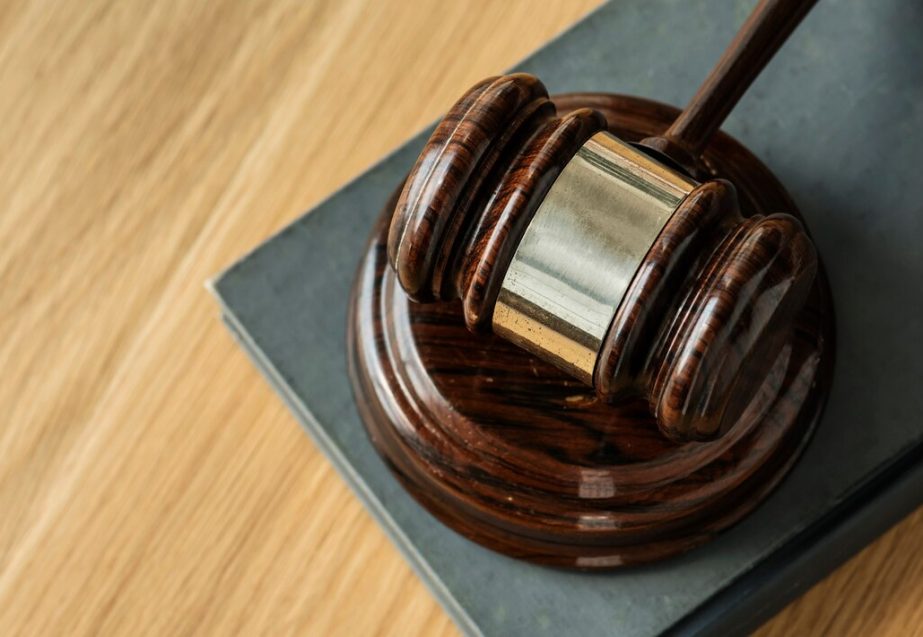
When you’ve been injured due to another’s negligence, the path to compensation can seem fraught with complexity and uncertainty.
One of the most crucial aspects of your personal injury case is the calculation of damages. This process is not just about recouping losses; it’s about ensuring that justice is served by adequately addressing the physical, emotional, and financial burdens you’ve endured.
In this article, we will delve into the intricacies of how damages are calculated in a personal injury case, providing you with the knowledge needed to navigate your claim effectively.
Types Of Damages In Personal Injury Cases

In the realm of personal injury law, damages are typically categorized into two main types: compensatory and punitive. Compensatory damages are intended to make the injured party “whole” again by covering all losses related to the injury. These can be further divided into economic damages, which have a specific monetary value, and non-economic damages, which are more subjective and harder to quantify.
Punitive damages, on the other hand, are awarded in cases of gross negligence or intentional harm. They are designed to punish the wrongdoer and deter similar conduct in the future.
Economic Damages: Calculation And Evidence
Calculating economic damages starts with a clear and detailed account of all medical expenses incurred as a result of the injury. This includes hospital bills, the cost of medication, and any ongoing rehabilitation costs. It’s essential to maintain thorough documentation, as each receipt and invoice will serve as evidence to support your claim.
Lost wages and the impact on future earnings are also significant factors in economic damages. If the injury has caused you to miss work or has diminished your earning capacity, these losses must be calculated. This often involves verifying current wages and considering the potential career trajectory had the injury not occurred.
When it comes to property damage, whether it’s a vehicle or personal belongings, the cost of repair or replacement is included in the economic damages. Assessments from experts or quotes from repair shops can provide the necessary figures for these claims.
Non-Economic Damages: Valuing The Intangible
Non-economic damages encompass the pain and suffering experienced due to the injury. Calculating these damages is more subjective and requires a comprehensive look at how the injury has affected your daily life. Daily impact logs, psychological evaluations, and even testimony from family and friends can paint a picture of the injury’s toll on your quality of life.
Emotional distress is another non-economic damage that considers the mental impact of the injury. Costs associated with therapy and counseling, along with personal statements, help in quantifying these damages.
Punitive Damages: Punishment And Deterrence

Although less common, punitive damages serve a critical role in the justice system. They are not linked to the victim’s losses but rather to the reprehensible nature of the defendant’s actions. The awarding of punitive damages is typically reserved for cases where the defendant’s conduct was particularly harmful or egregious.
The Role Of Negligence And Liability
A key element in calculating damages is establishing negligence and liability. In many jurisdictions, the concept of comparative negligence may apply, where the compensation can be reduced by the percentage of fault attributed to the injured party. Understanding how these legal principles affect your claim is vital in determining the potential damages awarded.
Using Experts In Your Personal Injury Case
Often, the assistance of various experts is crucial in accurately calculating damages. Medical professionals can provide insights into the extent of injuries and the cost of future care. Accident reconstructionists may be called upon to establish the events leading to the injury, while economic loss experts can offer detailed analyses of lost wages and earning potential. Expert testimony can significantly influence the outcome of your claim.
When it comes to seeking compensation for a personal injury, the guidance of a knowledgeable personal injury lawyer can be invaluable. They can help ensure that every loss is accounted for and that the damages calculated truly reflect the extent of your suffering. If you’re in Houston and in need of expert legal assistance, don’t hesitate to reach out to a Webster personal injury attorney who can advocate for your rights and work towards securing the compensation you deserve.
The Settlement Process

Negotiating a settlement with insurance companies is a common route for resolving personal injury claims. It involves a series of discussions where both parties agree on the amount of compensation to be paid to the claimant. A skilled Webster TX personal injury attorney plays a critical role in these negotiations, ensuring that the settlement offer adequately covers all damages, both current and future.
It’s important to approach settlement negotiations with a clear understanding of the full value of your claim. Insurance companies are often motivated to settle claims quickly and for as little as possible, so having a strong legal advocate on your side can make a significant difference in the outcome.
Going To Trial: What To Expect
If a fair settlement cannot be reached, your case may proceed to trial. During the trial, damages are presented to the jury, which then determines the amount of compensation to be awarded. The presentation of evidence, including medical records, expert testimony, and personal accounts, is crucial in painting a complete picture of the impact the injury has had on your life.
The jury will consider many factors when calculating damages, such as the severity of the injury, the extent of pain and suffering, and the long-term effects on the claimant’s life. They may also take into account the claimant’s life expectancy and any pre-existing conditions that could affect recovery.
Frequently Asked Questions On Personal Injury Case
When dealing with personal injury claims, many claimants have questions regarding the process and their potential compensation.
Here are some answers to frequently asked questions:
- How long do I have to file a personal injury claim? The time limit for filing a personal injury claim, known as the statute of limitations, varies by state. It’s imperative to file within this period to preserve your right to compensation.
- Can I claim for future medical expenses? Yes, if your injury requires ongoing treatment, you can include estimated future medical expenses as part of your claim.
- What if I was partially at fault for the accident? Under comparative negligence laws, you can recover the damages even if you are partially faulty, but thereafter, your compensation may be reduced by your percentage of fault.
- How does a structured settlement work? A structured settlement provides compensation through regular payments over a period of time, rather than a single lump sum. This can be beneficial for managing long-term financial needs.
Conclusion
Understanding how damages are calculated in a personal injury case is essential for anyone seeking compensation for their injuries. It’s a process that involves careful documentation, expert testimony, and a deep understanding of both the tangible and intangible losses suffered. While the process of a personal injury case can be daunting, it’s important to remember that you don’t have to face it alone.
If you’ve been injured and are dealing with the aftermath, consulting with a personal injury lawyer is a step towards ensuring that your rights are protected and that you receive the compensation you deserve. With the right legal support, you can focus on your recovery while your attorney handles the complexities of your personal injury case.
Contact a Personal Injury Lawyer
If you or a loved one has been injured due to the negligence of someone else, then do not think twice to seek legal help. A personal injury attorney can provide the expertise and support you need to navigate your claim and then struggle for the compensation that you are entitled to. Contact a personal injury lawyer today to discuss your case and take the first step toward securing the justice and compensation you deserve.
Read Also:
- Understanding Wrongful Death Lawsuits: A Step-By-Step Guide For Families
- 10 Questions To Ask Your Lawyer Before You Sign Them For Your Case
- How To Design The Best Law Firm Website In 7 Easy Steps











0 Reply
No comments yet.